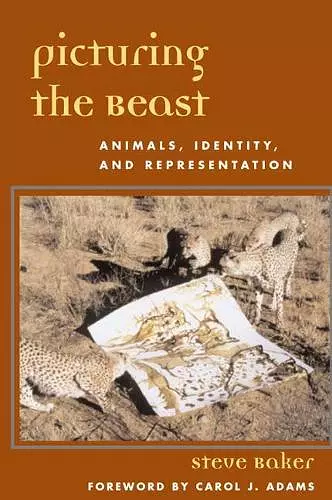Picturing the Beast
Animals, Identity, and Representation
Format:Paperback
Publisher:University of Illinois Press
Published:16th Oct '01
Should be back in stock very soon

Explores how human beings use animals and images of animals to define themselves--and how those depictions interfere with our abilities to understand the true nature of animals.
From Mickey Mouse to the teddy bear, from the Republican elephant to the use of "jackass" as an all-purpose insult, images of animals play a central role in politics, entertainment, and social interactions. In this penetrating look at how Western culture pictures the beast, Steve Baker examines how such images--sometimes affectionate, sometimes derogatory, always distorting--affect how real animals are perceived and treated.
Baker provides an animated discussion of how animals enter into the iconography of power through wartime depictions of the enemy, political cartoons, and sports symbolism. He examines a phenomenon he calls the "disnification" of animals, meaning a reduction of the animal to the trivial and stupid, and shows how books featuring talking animals underscore human superiority. He also discusses how his findings might inform the strategies of animal rights advocates seeking to call public attention to animal suffering and abuse. Until animals are extricated from the baggage of imposed images, Baker maintains, neither they nor their predicaments can be clearly seen.
For this edition, Baker provides a new introduction, specifically addressing an American audience, that touches on such topics as the Cow Parade, animal imagery in the presidential race, and animatronic animals in recent films.
"A pleasure to read as well as being a substantial work of scholarship." -- Andrew Johnson, Environmental Values "Immensely accessible ... Baker's study is witty, learned, sophisticated, and direct." -- Norman Bryson, editor of Visual Culture: Images of Interpretation "The continued value of Picturing the Beast lies in Baker's insistence that we consider animals more carefully, even when their appearance does not seem immediately significant (such as in children's literature, cartoon strips, advertisements, and news stories about politicians), that we ask questions about why animals appear the way they do, and that we think hard about how they might be imagined differently." -- Molly H. Mullin, Anthrozos
ISBN: 9780252070303
Dimensions: 210mm x 140mm x 25mm
Weight: 340g
280 pages